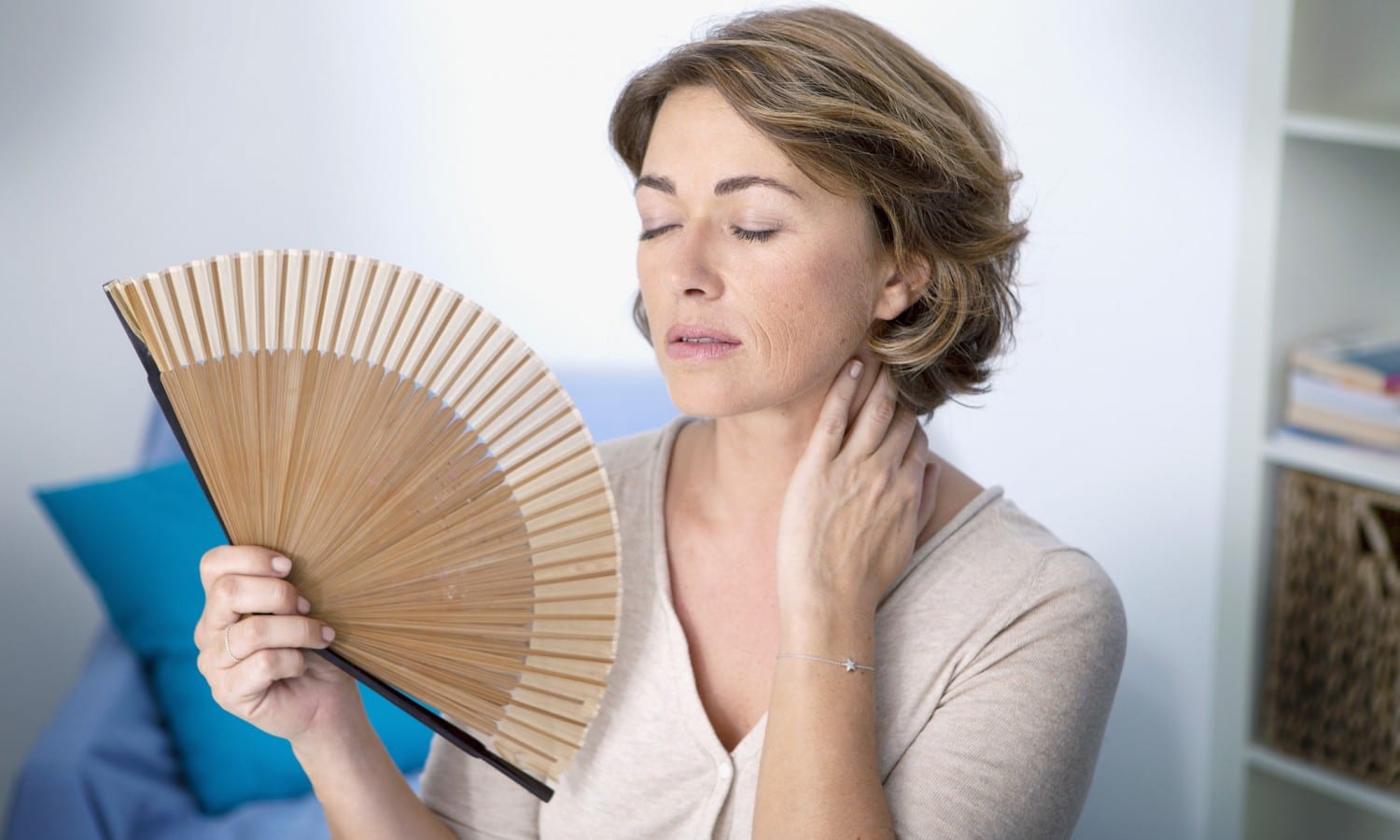Why is this Part of our Lives Treated like a Dirty Little Secret?
I’ve reached a fine age – which I might not disclose today – and lately I’ve begun to feel a little odd in myself. Waking up at 3am with my heart racing, spending days exhausted, feeling like someone has wrapped sellotape right around my head. Strong emotions, difficulty concentrating, and scary lapses in memory (“Shit! Was I supposed to meet you?”). Am I sick? Am I crazy? Do I need drugs? What’s going on?
There is a stage in every woman’s life that dramatically transforms who you are and how you experience the world. It’s as enormous a transition as adolescence – in fact it’s been likened to going through adolescence backwards – but no-one’s talking about it, and you might not even know what it is.
It’s called perimenopause. This word describes the final two-to-ten year winding down period of female reproductive life. It’s the time running up to the menopause, which, fact-fiends, technically lasts only one day – it’s the first anniversary of your very last period. So you don’t go through the menopause – it’s perimenopause that causes all the bother. But you’d be surprised how many people don’t know this – including medical professionals.
Does the word itself sound a bit strange to you? I’ve mentioned it to my younger friends and they’ve responded with “what is that?” or “OMG it sounds terrible!” But it’s coming for you, girl – it’s just no-one’s told you yet. It can begin any time from your late twenties but is much more likely to be going on in your forties, given that the average age at menopause is fifty one. You might know it better as ‘the change,’ a phenomenon generally spoken of in hushed, embarrassed tones. Seeking allies, I tried speaking of my experiences in the company of older women, surely experienced navigators of these treacherous waters. They acted like I didn’t say that dirty word, and I felt as though I was crying in a desert.

PERIMENOPAUSE! I’m shouting about this, cos it’s what I do, and because this is a thing, a very relevant phenomenon for all of us. PERI-FUCKING-MENOPAUSE! I’m not taking this lying down – although actually I might just need to go and have a quick lie down – no, let’s get this all out on the table now, and I hereby assert my demand that mainstream and medical cultures go through their own change and acknowledge this crucial element in the lives of 52% of the people here on this spinning globe. I mean seriously, why the FUCK is this a secret?
This set of experiences, marked by hormonal change as we exit the reproductive stage of our lives, is completely normal and natural, and it’s different for each one of us. For some it might not be a big deal, for others we might need to work a few things out health-wise. Once we are armed with all the information about it we’ll be able to make the transition smoothly. But a lack of that information renders us liable to be caught off guard – one minute we’re living our lives and the next it’s all gone freaky deaky. Finding yourself in the midst of the thing without having the slightest idea of what it is, is likely to make you feel sick, or crazy, or both.
Information is power. Without it, you may well stumble into the arms of a doctor getting bonuses for scrawling prescriptions of antidepressants. Adolescence we all know about; there are countless films and TV shows that highlight the hormonal turmoil of teenagehood. The start of your life as a reproductively-capable human brings with it a whole lot of intense madness and that’s culturally accepted. But what happens when it comes to an end – and you happen to be female?

The fact that I had to do a bunch of detective work to find out what is happening to me points to a gaping hole in our cultural map – one that suggests that the map is really only meant for blokes. It was an old Irish taxi driver who said to Gloria Steinem, “If men could get pregnant, abortion would be a sacrament.” What would happen if men had perimenopause to contend with? In my reckoning there would be centres dedicated to its study, and the alleviation of its symptoms would be an extremely high priority in medicine. It would also be a respectable subject in literature, and the media and entertainment industries would find it a rich conceptual source of material.
Yet it happens to women, and it’s been blanked out of our knowing. Perimenopause is essentially taboo, something we’re expected to navigate in darkness, alone, with only (quite possibly ill-informed) doctors to guide us. Then it’s easy for us to believe that these changes are pathological, which makes us perfect customers for drug companies’ wares as we seek fixes for the odd feelings and behaviour we’re seeing in ourselves.
But we are meant to experience this transition. Kirsten Ivatts is an energist – someone who works with energy therapies to guide people to their own healing – and she talks about perimenopause as the path to our Wise Woman stage. Once we are free of the hormonal fluctuations that come with reproductive capability, we have a stability we can really enjoy. Kirsten has developed simple techniques to make the transition smoother, and has a radical reinterpretation of hot flushes.
Another voice in the wilderness is Dr Julie Holland, the author of the delightfully-titled book Moody Bitches. In it she looks at the ways in which women and men are differently wired, and gives a readable account of the complex world of hormones. She calls into question all the ways in which women’s health, mental and physical, is pathologised. Antidepressants cos you burst into tears at work? Crying is a natural release that we all need from time to time – especially if the people we are working with are acting like dicks.

Reading Moody Bitches gave me a wonderful flash of insight: we are all exactly as we are meant to be. Women of a certain age are meant to be slightly batty and occasionally a little bit shouty. There are perfectly good reasons for this, and everyone else had better be nice. And when we get to the other side of it and claim our full power, the world had better watch out.
Dr Julie sets out a survival guide with info on diet, exercise, herbs, and the pros and cons of the drugs you’re likely to be offered. She’s a big advocate of cannabis use for this situation; I imagine that on a visit to her surgery you’d be more likely to passed a spliff than a prescription for antidepressants.
Her book is medicine in itself – the information it contains is empowering, and it’s our birthright! Until perimenopause becomes front page news, and the stuff of films, songs and a lot more blogs like these, Moody Bitches is going to be the bible for every female under fifty.
(Note from the editor: Many thanks to Karren Ablaze! for being a House-Guest! To read more of her work, check out her website www.mittenson.com or read more about her on her author page here. To become a house-mate and contribute articles to The Glass House Girls, click here)









